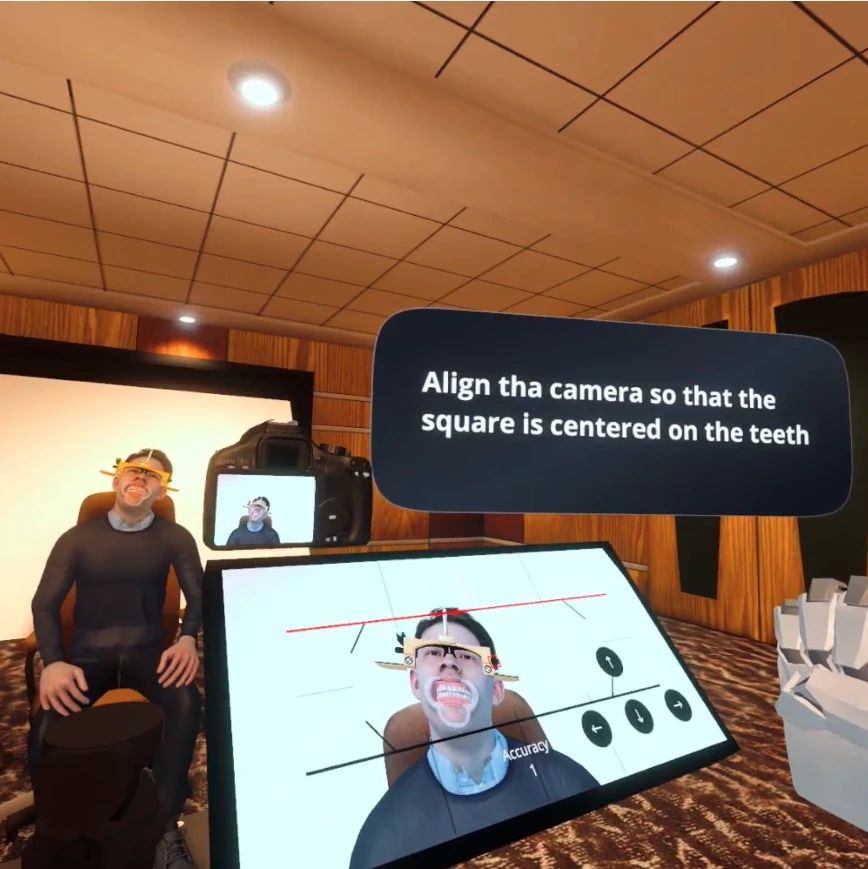Learn more about VR Training practices!
Table of contents
Key Takeaways
Studies have shown that VR training is 35% more effective compared to even the most advanced training methods.
VR Training offers a safe, controlled environment for learning, allowing trainees to practice complex tasks and build their skills while avoiding real-world risks.
VR development of software is particularly valuable in industries where hands-on experience is crucial, such as healthcare, aviation, and emergency response.
Developing a successful VR training program requires a combination of technical expertise, instructional design, and a deep understanding of the target audience’s needs.
What if your team could practice complex tasks in a safe, controlled environment before facing real-world challenges?
VR Training is revolutionizing professional development by providing immersive, hands-on experiences that enhance learning and retention. Discover how VR Training can elevate your organization's capabilities and prepare your team for success.
A PWC study showed that training administered through VR training offers a 35% better results compared to even the most advanced methods of traditional training. The way that it achieves this is allowing the most advanced method of simulation training, which has been proved to be incredibly effective.
Introduction to VR Training
In today’s fast-paced and increasingly complex professional landscape, VR Training has emerged as a powerful tool for enhancing learning and skill development. Virtual Reality (VR) training allows people to practice and hone their skills in a fully immersive, risk-free environment, offering unparalleled opportunities for experiential learning.
Unlike traditional training methods, which often rely on passive instruction, VR Training engages users actively, enabling them to interact with virtual scenarios that closely mimic real-life situations.
VR Training is particularly valuable in industries where hands-on experience is crucial, such as healthcare, aviation, manufacturing, and emergency response. By simulating realistic environments, VR allows trainees to practice complex tasks, make decisions under pressure, and learn from mistakes without any real-world consequences. This not only improves competency but also boosts confidence and preparedness.
One of the main benefits of VR training is that it is able to significantly reduce training costs. This is especially true in the manufacturing industry as it reduces the need to purchase raw materials or testing samples.
At Takeaway Reality, we specialize in creating customized VR Training programs that cater to the specific needs of our clients. Our services include VR app development, VR training, VR education, and VR museum experiences, all designed to deliver immersive learning experiences that drive results.
If you wish to learn more, you can have a look at our list of the best VR companies as well as our list of the best VR developers.

The Evolution and Importance of VR Training
The concept of VR Training has evolved significantly in recent years, driven by advancements in VR technology and an increasing recognition of the limitations of traditional training methods. Early VR systems were often expensive and limited in their capabilities, but today’s VR technology offers high-fidelity visuals, precise motion tracking, and intuitive interactions, making it possible to create realistic and effective training programs.
One of the key advantages of VR Training is its ability to provide a safe and controlled environment for learning. In industries where mistakes can be costly or dangerous, VR allows trainees to practice without the risk of harm. This is particularly important in fields like healthcare, where surgeons can rehearse procedures in VR before performing them on patients, or in aviation, where pilots can simulate emergency scenarios that would be too risky to practice in real life.
Moreover, VR Training offers the flexibility to simulate a wide range of scenarios, from routine tasks to complex, high-pressure situations. This allows trainees to build their skills gradually, gaining confidence as they progress from basic exercises to more challenging ones. The immersive nature of VR also enhances memory retention, as trainees are more likely to remember and apply what they’ve learned when they are actively engaged in the learning process.
The Process of VR Training Development
Developing an effective VR Training program requires a combination of technical expertise, instructional design, and an understanding of the specific needs of the target audience. At Takeaway Reality, we follow a structured process to ensure that every VR training program we develop meets the highest standards of quality and effectiveness.
Needs Assessment and Planning: The first step in developing a VR training program is to conduct a thorough needs assessment to understand the goals of the training and the skills that need to be developed. This involves working closely with the client to identify key learning objectives, define the scope of the training, and develop a detailed plan for the program.
Design and Content Creation: Once the needs have been identified, our design team creates the virtual environments, scenarios, and interactive elements that will be used in the training program. This stage involves creating realistic and engaging content that immerses trainees in the learning experience.
Development: The technical development phase involves coding the VR training program, integrating the virtual environments with the training scenarios, and optimizing performance across different VR platforms. Our developers ensure that the program runs smoothly and provides a seamless and immersive experience for trainees.
Testing and Quality Assurance: Before launching the VR training program, we conduct extensive testing to ensure that it meets the desired learning objectives and provides a high-quality user experience. This includes performance testing, usability testing, and making any necessary adjustments based on feedback from test users.
Implementation and Support: Once the VR training program is ready, we assist with its implementation and provide ongoing support to ensure its success. This includes monitoring trainee performance, providing updates, and adding new content as needed.
Frequently Asked Questions
Send us a message and expect our reply as soon as possible!




